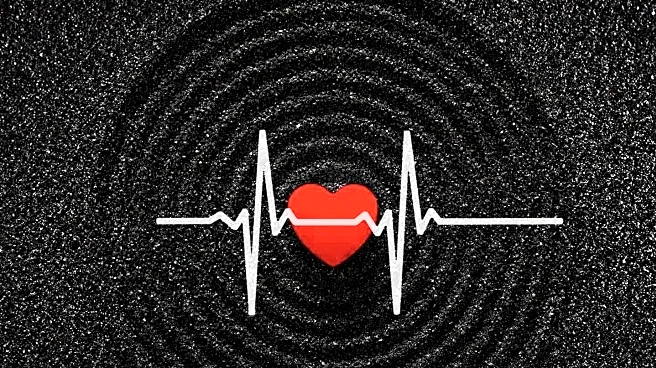What is the story about?
What's Happening?
A groundbreaking study conducted by researchers from Finland and the UK has revealed that myocardial infarction, commonly known as heart attacks, may be an infectious disease. This challenges the traditional understanding of heart attack pathogenesis and opens new possibilities for treatment and prevention. The study found that atherosclerotic plaques in coronary artery disease may contain bacterial biofilms that remain dormant for years. These biofilms can be activated by external triggers, such as viral infections, leading to bacterial proliferation and inflammation, which can cause plaque rupture and subsequent heart attacks. The research demonstrated the presence of DNA from oral bacteria within these plaques, suggesting bacterial involvement in coronary artery disease.
Why It's Important?
This discovery could revolutionize the approach to diagnosing and treating heart attacks. If heart attacks can be linked to bacterial infections, it may lead to the development of new diagnostic tools and therapeutic strategies, including vaccines. This could significantly impact public health by potentially reducing the incidence of heart attacks through preventive measures. The study also highlights the importance of understanding the role of infections in cardiovascular diseases, which could lead to more comprehensive treatment plans that address underlying bacterial causes.
What's Next?
The findings pave the way for further research into the development of vaccines and antibiotics targeting the bacteria involved in coronary artery disease. Researchers will likely focus on validating these results through additional studies and exploring the potential for clinical applications. If successful, this could lead to a paradigm shift in how heart attacks are prevented and treated, with implications for healthcare systems worldwide.















